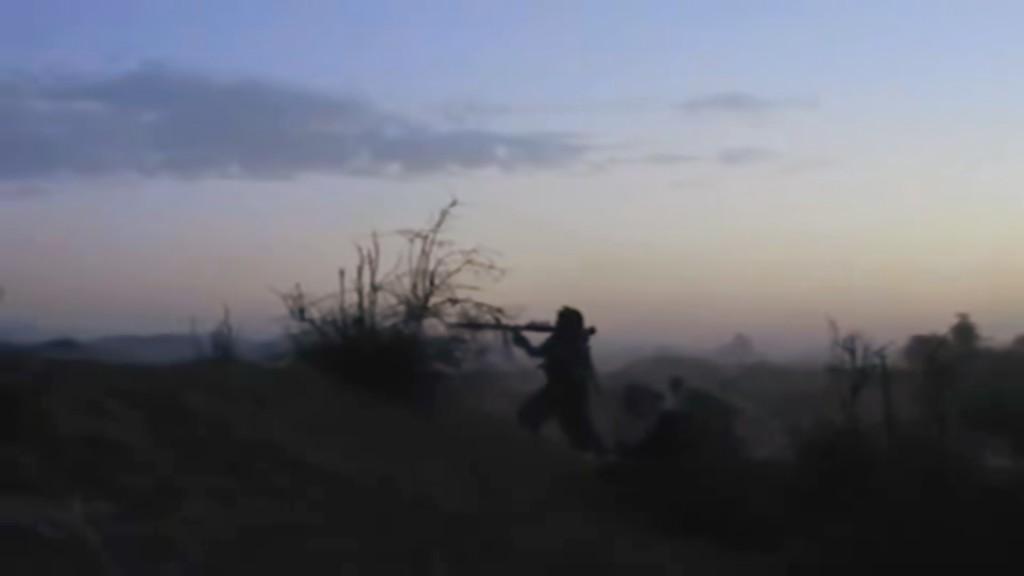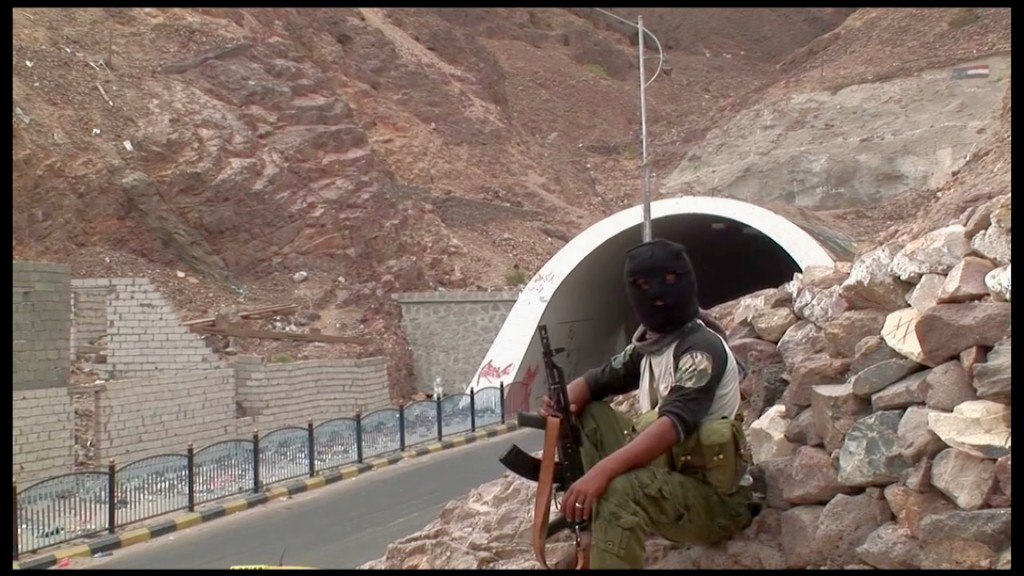Study Suggests Yemen Strikes Are Radicalizing Population

May 30, 2012
Share
The escalating campaign of U.S. air strikes targeting suspected Al Qaeda militants in Yemen — where most of the organization’s significant, known terror plots in the last few years have originated — has brought “a marked radicalization of the local population” and is “driving tribesmen to join a network linked to terrorist plots against the United States,” according to a new study reported in The Washington Post today. (View our interactive map of the strikes and plots in Yemen over the last decade.)
The study was based on more than 20 interviews with “tribal leaders, victims’ relatives, human rights activists and officials from four provinces in southern Yemen,” who said civilians had also died in the U.S. strikes.
In last night’s report, Al Qaeda in Yemen, correspondent Ghaith Abdul-Ahad went deep inside the country’s radical heartland to investigate Al Qaeda’s rapid rise in southern Yemen, and its efforts to win over the local population. In the clip above, he observes how in dangerous areas like the Shabwa region, surviving or being killed in a U.S. strike is seen as a badge of honor. In the city of Aden, Abdul-Ahad also saw how thousands of Yemenis have been displaced by army shelling, aerial bombardment, drones and Yemeni army fighter jets.
Critics are concerned that the ramped-up U.S. strikes in Yemen — which have killed top Al Qaeda targets including USS Cole suspect Fahd al-Quso and American-born preacher Anwar al-Awlaki, but have also killed civilians — are in fact strengthening Al Qaeda.
In December 2009, Al Qaeda in the Arabian Peninsula (AQAP), the terrorist organization’s regional affiliate in Yemen and Saudi Arabia, had “roughly between 200 to 300 members” and controlled no territory, notes Yemen expert Gregory D. Johnsen. Today, AQAP, which now controls swaths of territory in southern Yemen, has more than 1,000 recruits, according to President Obama’s top counterterrorism official, John Brennan.
“The drone and airstrikes are an incredibly powerful weapon that give the U.S. an amazing advantage over AQAP when they work as they are intended to work,” Johnsen told FRONTLINE. “However, when they go wrong – such as they did with the Dec. 17, 2009 strike [in Majala that killed dozens of civilians] – they become a powerful weapon in the hands of AQAP that helps the group bolster its ranks with new recruits”
Critics also say the strikes are isolating tribal leaders, whose allegiance could prove key in the fight against Al Qaeda.
“Tribal allegiances drive much of Yemen,” explains journalist Michelle Shephard, who has reported from the country. “Too often this is confused in the West as support for AQAP’s ideology. Take, for instance, the protection Awlaki enjoyed before his death. Much of that was thanks to his family’s powerful tribe connection, not support in the ideology he espoused. So if the use of ‘signature [strikes]’ – those that target regions instead of individuals – erroneously kill tribal leaders, women or children, the blowback is an increase in anti-U.S. sentiment of which AQAP will deftly capitalize.”
Experts who defend the strikes say that they are the most effective way of fighting AQAP. “Any other option that could apply equal military pressure on AQAP would likely inflict far more civilian casualties on the Yemeni population,” argues Clinton Watts, a senior fellow at the Homeland Security Policy Institute at George Washington University.
But others argue that there are alternatives to the ramped-up strikes.
“The alternative is what is working right now. The Yemeni military allied with the ‘local committees’ in Abyan have turned the tide against Al Qaeda’s insurrection,” says Charles Schmitz, a Yemen specialist at the University of Towson.
Read more analysis about America’s targeted killing program in Yemen, and whether there are effective alternatives. And if you missed the broadcast, you can watch Al Qaeda in Yemen online here.
Related Documentaries
Latest Documentaries
Related Stories
Related Stories
Explore
Policies
Teacher Center
Funding for FRONTLINE is provided through the support of PBS viewers and by the Corporation for Public Broadcasting, with major support from Ford Foundation. Additional funding is provided the Abrams Foundation, Park Foundation, John D. and Catherine T. MacArthur Foundation, Heising-Simons Foundation, and the FRONTLINE Trust, with major support from Jon and Jo Ann Hagler on behalf of the Jon L. Hagler Foundation, and additional support from Koo and Patricia Yuen. FRONTLINE is a registered trademark of WGBH Educational Foundation. Web Site Copyright ©1995-2025 WGBH Educational Foundation. PBS is a 501(c)(3) not-for-profit organization.





















